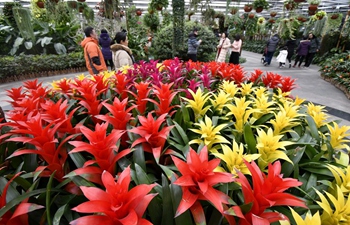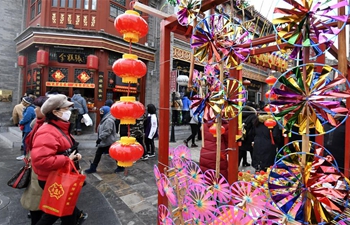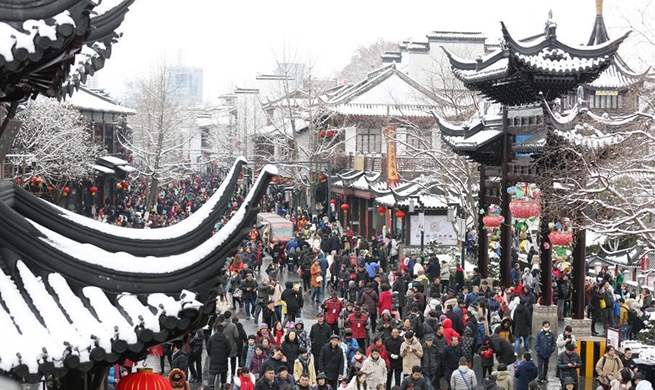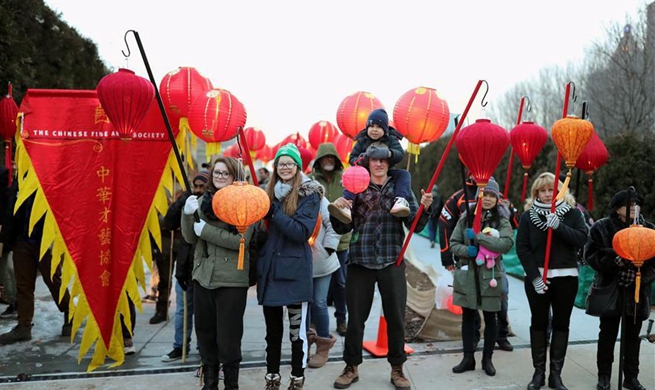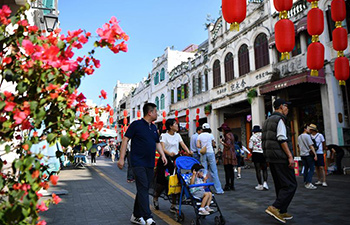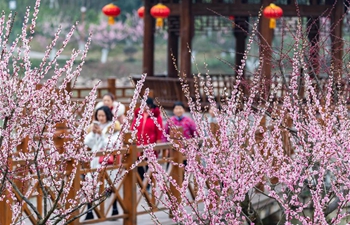CHENGDU, Feb. 11 (Xinhua) -- Luo Zhongping led a group of farmers braving the winter cold to transplant a wild herb to the fields down the hill from a giant panda habitat in the mountains of southwest China's Sichuan Province.
The plant named Schisandra chinensis is regarded as a medicinal herb known for increasing people's resistance to disease and stress.
Although the plant can be commonly found in the mountains of southern China, the one grown in the mountains in Pingwu County, Sichuan, has a special certification of its origin conferred by the World Wildlife Fund (WWF) in recognition of the China panda reserve's efforts to striking a balance between the protection of the endangered animal and the development of human living.
Pingwu County has 48 percent of its 5,974 square km of coverage restricted into the Giant Panda National Park inaugurated in October 2018.
According to the 2015 field research of wild giant pandas, 335 wild pandas were living in the mountains in Pingwu, accounting for 18 percent of China's total.
However, with a population of 186,000, Pingwu has yet to fight poverty. People in the mountainous area used to live on logging, collecting wild herbs and hunting. Since China tightened up natural forest protection and the giant panda protection in the area in 1998, logging has been banned and the locals had to find alternatives for making a living.
Over the past decade, Luo has grouped 400 rural households in the county in his cooperative for the cultivation of the Schisandra chinensis. Transplanting the wild herb from the mountains for mass cultivation is believed to better sustain the medicinal effects of the harvested herb.
In 2018, his cooperative sold 10 tonnes of the herb. WWF's recognition of the Pingwu origin certificate of the herb in October 2018 has given the business a strong boost.
Soon after the certificate was conferred, U.S. herb dealer Traditional Medicinals signed a five-year contract with Luo's cooperative for purchasing the herb at a price 20 percent higher than the market price.
"People have become more and more assured that ecological protection should not conflict with economic development. We have found organic farming as a way of harmonious coexistence for humans and nature in Pingwu," said Jiang Shiwei, deputy director of the county's forestry bureau.
Over the years, people have adapted their livelihoods from hunting and grazing to herb planting and bee farming. They voluntarily released fry fish into rivers to replenish the fish resources.
Jiang said the national park management has led to tightened efforts to control poaching, illegal fishing and illegal harvesting of wild plants in the reserve area.
The organic farming yielded a revenue of 111 million yuan (16 million U.S. dollars) in the first nine months of 2018 in the county when the poverty rate dropped to 0.46 percent from 12.8 percent in 2014.





